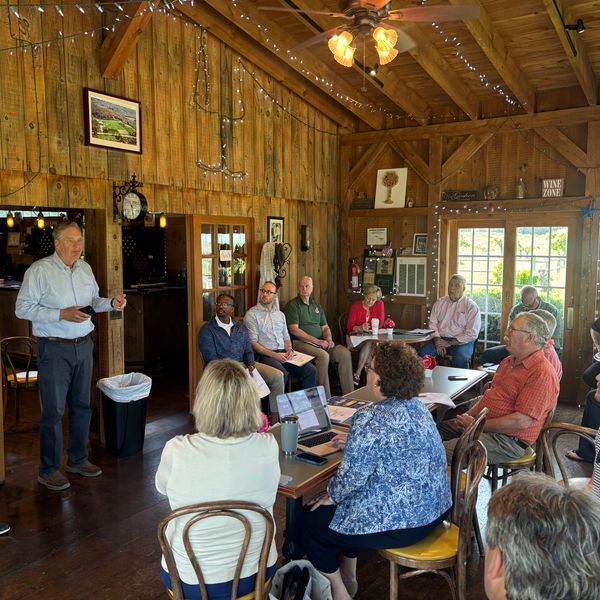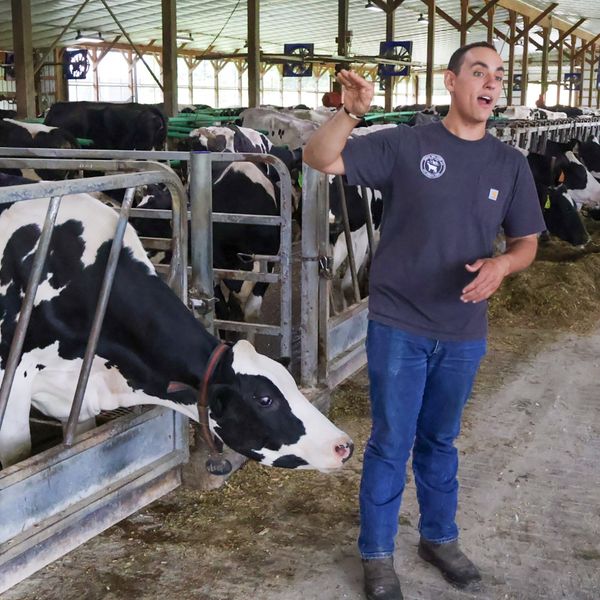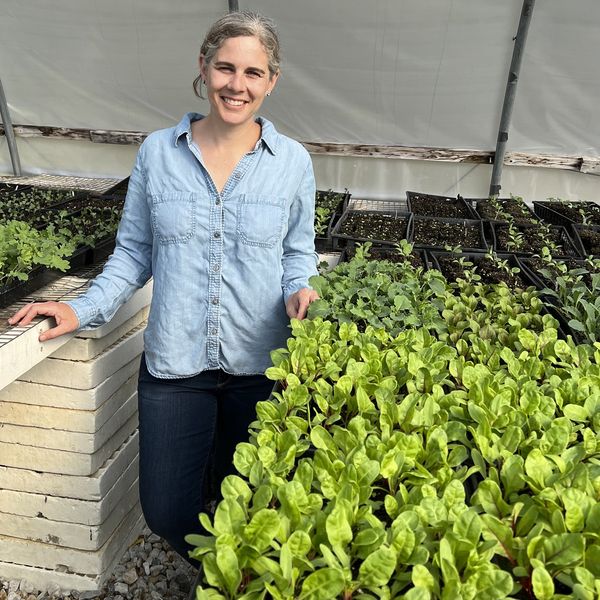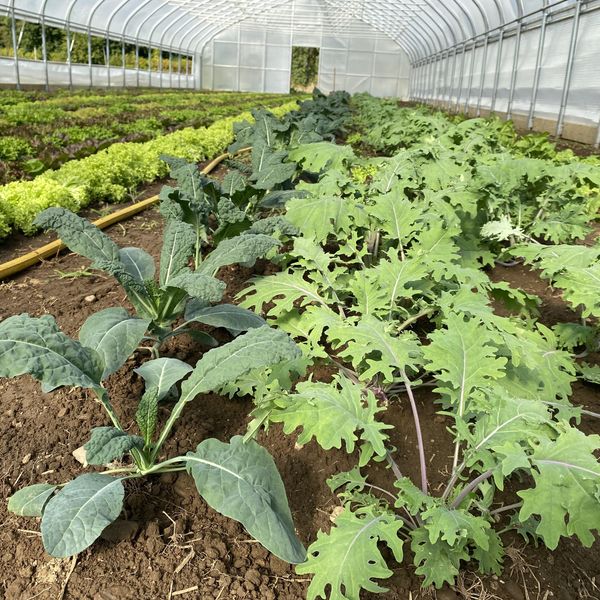Rep. Hayes engages with regional leaders on farm bill priorities
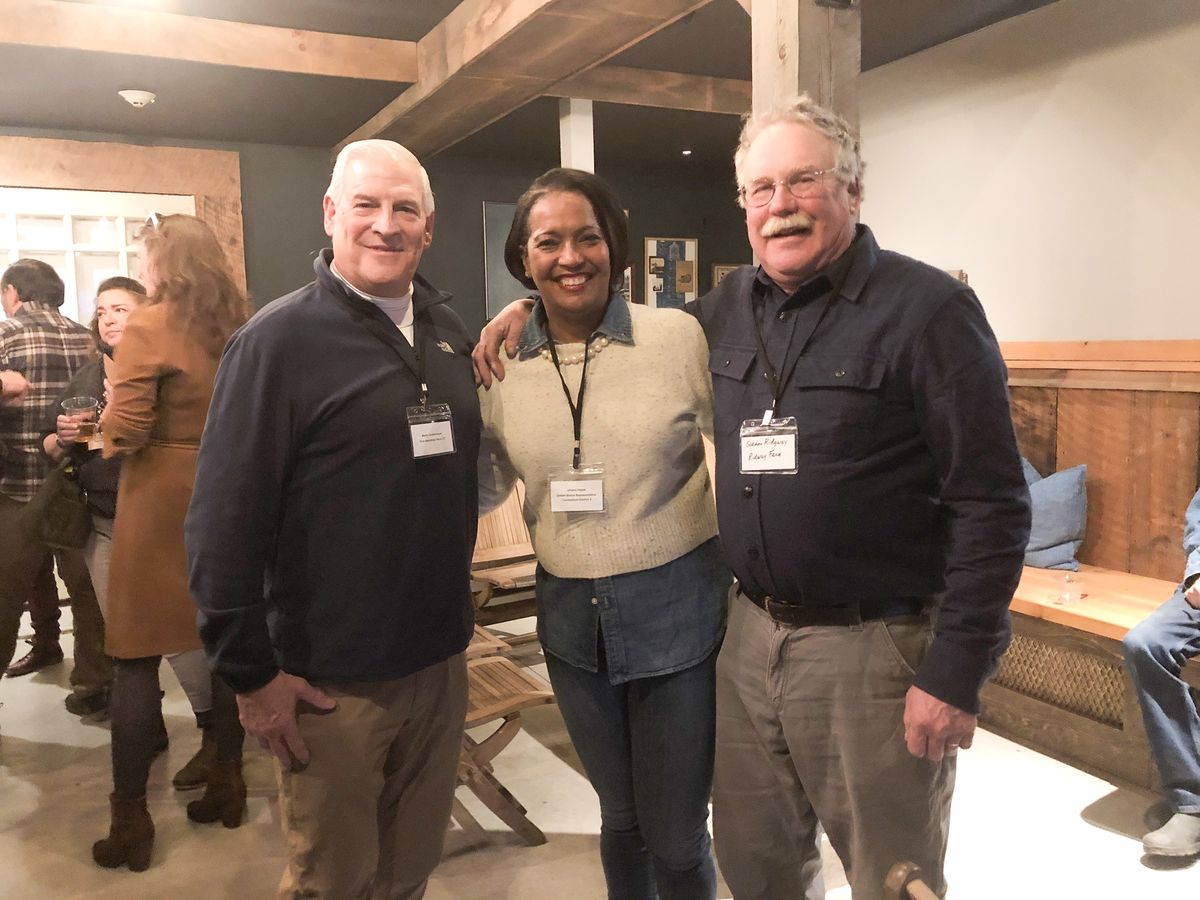
From left, Marty Lindenmayer, first selectman in Kent, Jahana Hayes (D), congresswoman for Connecticut’s 5th district, and Gordon Ridgway, first selectman in Cornwall and local farmer, met in February to discuss agriculture priorities and challenges. Hayes sits on the House Agricultural Committee.
Janna Siller

